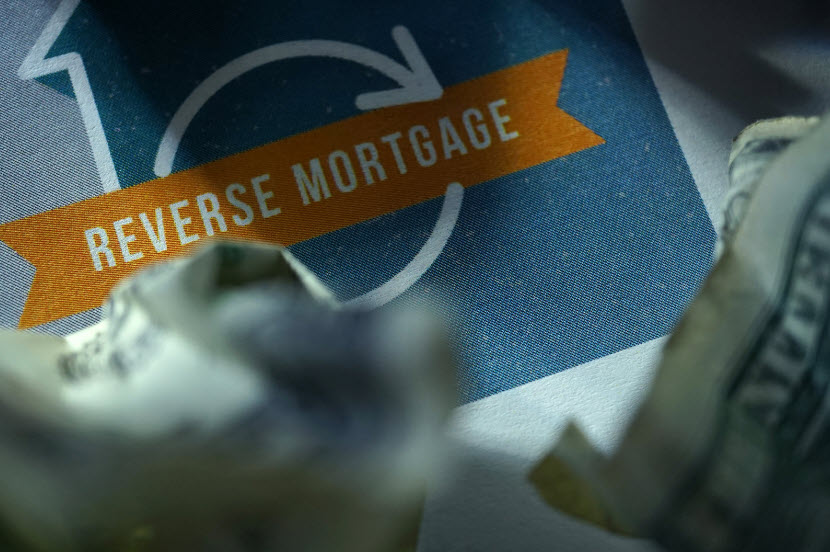Reverse Mortgage Concepts
Reverse mortgages have become a very popular option for senior citizens. They are so common because it gives the homeowner the freedom to use the proceeds of the loan for whatever they choose. Because the homeowner has total control on how to use the proceeds of the loan, there are many different ways in which reverse home mortgages are being used.
The amount you get
The amount that you can get as a reverse mortgage depends on the kind of equity you have built up on your home. If possible you can get a home appraisal done to find out how much you are entitled to borrow. See if the amount suffices your requirements and then take your decision.
Payment options
When it comes to receiving funds from reverse mortgage you can choose from different options. You can get it as a lump sum, a monthly payment, or a line of credit. You can also try a combination of these. Consider your personal situation before selecting the right option.
Legislations
HUD keeps changing the rules for reverse mortgage every now and then. They may not affect existing borrowers. But as a senior homeowner who is thinking about taking out a reverse mortgage you may have to keep yourself aware of all these rules and regulations.
About Company
Reverse Home Mortgages and Long Term Care
Many senior citizens are finding themselves in a position where they have to discover diverse ways to finance their long-run care due to the raising fees in health care. Many seniors have chosen a reverse home mortgage as a manner to fund their healthcare fees. They spend the revenue to pay for the current monthly fees or a long term care premium.
The proceeds they receive from the reverse home loan allows some senior citizens to guarantee the type of health care they deserve for as long as they needed. This is so because the FHA insurance makes sure that homeowners keep getting monthly payments for as long as they live in the house.
The money you get from a reverse home mortgage is tax exempt. Also, depending on your financial situation, your social security and Medicare benefits are usually not affected by the money you receive from the seniors reverse mortgage. To make sure, it is a good idea to talk to your CPA, ask your reverse mortgage broker or ask the counselor you are entitled to when applying for a reverse mortgage.
Purchase a home using a reverse mortgage
Should you choose to move now, or sell and move later you may use a reverse mortgage to purchase your new home. Once again you will have no mortgage payment as long as you live in your new home. The only stipulation is that you can only have one reverse mortgage at a time, and it must be on your primary dwelling.
No credit or income requirements to qualify. Reverse mortgages are underwritten and approved based on your age, the loan to value- percentage of equity in your home- and the location of your home. Because you have no payment requirements on the home, credit and income figures are not used to qualify or disqualify you from the loan.
Benefits of a Reverse Mortgage
Protection from Market Volatility.
Once you sell your home or pass away you and/or your estate retains any remaining equity after the reverse mortgage and its accrued interest is paid in full. However, should market conditions worsen, or should any event occur leaving the balance of the reverse mortgage at a greater amount than its value, neither you nor your heirs will be required to pay the shortfall. FHA insurance protects lenders from these losses and guarantees that you will never be displaced from the home, and will never have to make a regular mortgage payment on that loan.
Sound too good to be true?
There is a catch – your closing costs on the reverse mortgage include an insurance premium to FHA that pays for this protection. As a result, a reverse mortgage typically carries slightly higher closing costs than a traditional mortgage. You and your heirs are therefore protected in part from the housing market. You get the equity if home values go up, the lender takes the loss if the home is worth less than the payoff of the mortgage.
Closing costs
The closing costs on reverse mortgages are generally speaking a bit higher than traditional mortgages. These costs include paying the upfront FHA insurance premium and other costs associated with getting the reverse mortgage. However with the exception of the appraisal, these closing costs are not charged out of pocket, but are reduced from the loan proceeds upon closing. The appraisal fee can usually be refunded to you at closing.
Reduced equity in the home
Once you borrow money against your home equity a lien is placed against your home. That lien must be paid off once you sell the home or pass away. As a result there will be less equity proceeds going to you or your heirs upon selling the home because the reverse mortgage balance borrowed originally, plus its accrued interest must be paid off at that time. However should this balance be greater than the value of the home you will not be obligated to pay the shortfall.
Loan Responsibilities
You must adhere to loan responsibilities as agreed upon at closing. The primary responsibilities are: reside in the home as your primary residence, pay for property charges such as taxes, hazard insurance and homeowner association dues and maintain the property in reasonable condition. Failure to meet these responsibilities may result in the loan becoming due and payable.
Purchase a home using a reverse mortgage
Should you choose to move now, or sell and move later you may use a reverse mortgage to purchase your new home. Once again you will have no mortgage payment as long as you live in your new home. The only stipulation is that you can only have one reverse mortgage at a time, and it must be on your primary dwelling.
To learn about the reverse mortgage purchase product and how it works book a consultation
How a Reverse Mortgage Helps Seniors
This federally-insured loan allows seniors the freedom to choose to live in the comfort of their home instead of possibly moving to an independent living center or with relatives. These mortgages can offer seniors the opportunity to pay off debt and medical bills, supplement their social security and pension, or just complete a much needed home repair.
The way it works is by liquidating a portion of the home’s equity. This means borrowers can be rewarded for their years of hard work, dedication and commitment by using their home to remain in their home. Unlike a conventional mortgage, no monthly payment is required for the duration of the borrowers’ occupancy. As long as the homeowner resides in the home, they will never have to make another monthly mortgage payment again!
What are the Qualifications For A Reverse Mortgage?
To qualify for this unique mortgage, one must be 62 years old or older and live in the home as their primary residence. The FHA also requires that homeowners receive counseling from a HUD-approved agency before applying for the mortgage.
There are many types of homes that qualify for reverse mortgage. If a senior lives in one of the following they can take advantage of this unique loan:
- A single family home.
- 1 to 4 unit home or townhouse with one unit occupied by the borrower.
- A manufactured home built after July 1976 that complies with FHA guidelines.
- A condominium with FHA-approval.
In order to understand if a reverse mortgage is the right choice, it is important to understand all of the aspects of this particular loan. If one is short on cash and wants to tap into the equity of their home, a reverse mortgage may be the answer to their prayers. As long as a borrower maintains the home and its taxes and insurance, this financial product may be the right fit.
Blog & News
Latest Posts
Everything About Employment Contracts
Lorem ipsum dolor sit amet, consectetuer adipiscing elit. Donec odio. Quisque volutpat mattis eros. Nullam malesuada erat ut turpis. Suspendisse urna nibh, viverra non, semper suscipit, posuere a, pede.
Corporate And Commercial Law
Lorem ipsum dolor sit amet, consectetuer adipiscing elit. Donec odio. Quisque volutpat mattis eros. Nullam malesuada erat ut turpis. Suspendisse urna nibh, viverra non, semper suscipit, posuere a, pede.
How To Start A Limited Liability Company?
Lorem ipsum dolor sit amet, consectetuer adipiscing elit. Donec odio. Quisque volutpat mattis eros. Nullam malesuada erat ut turpis. Suspendisse urna nibh, viverra non, semper suscipit, posuere a, pede.




